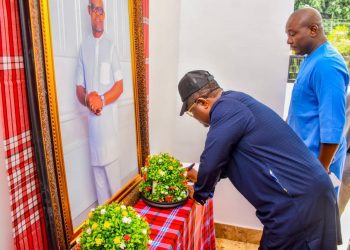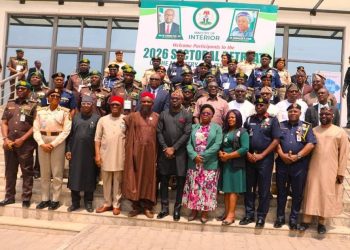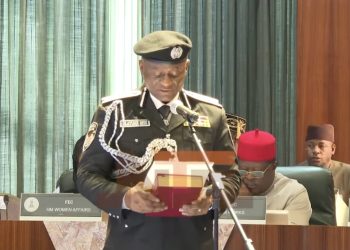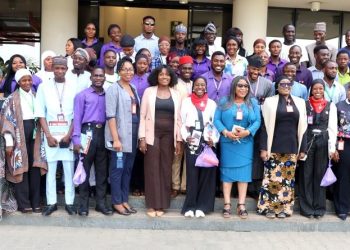By Nkechi Eze
As Nigeria sets the stage to celebrate the 2025 National Children’s Day, the Honourable Minister of Women Affairs, Imaan Sulaiman-Ibrahim, fsi, has issued a passionate appeal to parents, educators, government institutions, and the public at large to take bold, united steps against the rising tide of bullying threatening the nation’s youth.
Speaking during a press briefing held at the Federal Ministry of Women Affairs Crèche in Abuja on Monday, May 26, the Minister declared that this year’s Children’s Day theme, “Speak Up, Stand Up: Building a Bullying-Free Generation,” is more than a slogan it is a national summons to act.
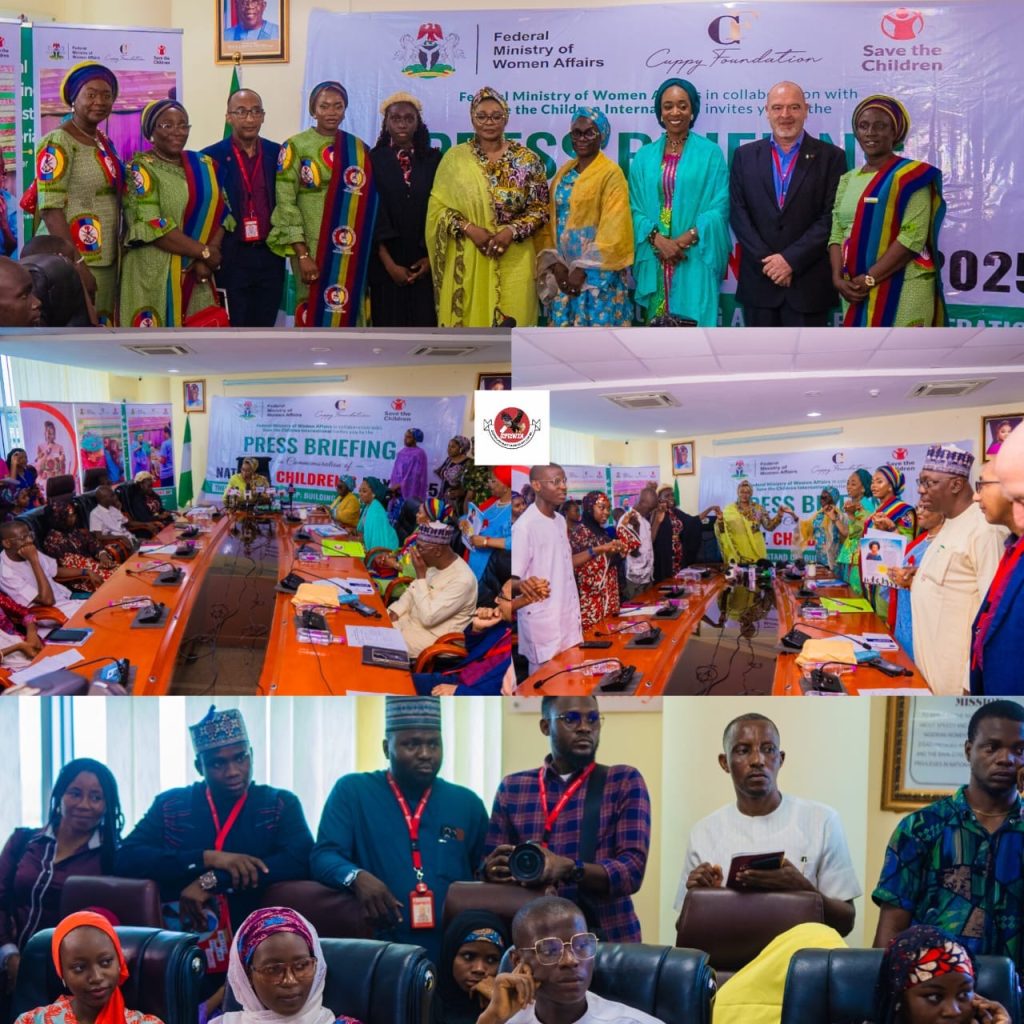
Citing deeply troubling data, the Minister revealed that 51.9% of Nigerian adolescents report being victims of bullying, while 27.9% admit to having bullied others. “These statistics are not mere figures they are distress signals, silent screams from our children,” she stressed. Referring to tragic incidents such as the 2021 death of a 12-year-old student and numerous other cases of violence and abuse, Sulaiman-Ibrahim warned that bullying in all its forms whether physical, emotional, cyber, or institutional has become a social emergency.
She applauded the Federal Ministry of Education’s recent adoption of a National Policy on Anti-Bullying, calling it a step in the right direction. However, she underscored that policies must go beyond paper. “It is not enough to launch policies,” she said. “They must be enforced with sincerity, monitored with transparency, and complemented by cross-sectoral collaboration. We must not operate in silos.”
The Minister emphasized that bullying erodes the foundational investments made in the education sector and violates fundamental human rights enshrined in Nigeria’s Constitution and the Child Rights Act. She urged all sectors governmental and non-governmental to harmonize their efforts and speak in one voice against a culture that normalizes intimidation and abuse.
Sulaiman-Ibrahim also used the occasion to spotlight recent child-focused initiatives under the Renewed Hope Agenda of President Bola Ahmed Tinubu. Among them is the recently launched National Costed Action Plan (2025–2030), aimed at addressing child protection issues holistically. She announced the upcoming rollout of national guidelines and updated policies that touch on critical areas such as child protection, adoption processes, menstrual health management, and childcare systems.
In a show of solidarity with youth-centered advocacy, this year’s Children’s Day will feature a series of activities including a school rally at the Old Parade Ground, an exhibition at the State House Banquet Hall, and a children’s party. These events will also tie into World Menstrual Hygiene Day, marked on May 28, amplifying the commitment to the health and dignity of the girl-child.
Delivering a heartfelt message, the Minister called on parents to “nurture with wisdom,” teachers to “lead with empathy,” and society at large to shed harmful cultural norms that perpetuate violence against children.
“To the media,” she said pointedly, “you are not bystanders. You are critical partners in our journey to protect every Nigerian child. We ask that you continue to investigate, report, and amplify every story of abuse. Let no injustice go unnoticed.”
She concluded by extending deep appreciation to President Bola Ahmed Tinubu and the First Lady, Senator Oluremi Tinubu, for their unwavering support. She also recognized state governors, legislators, and international development partners, noting that building a safe environment for children is a shared duty.
“Let our actions speak louder than our promises. Let us build a future where every Nigerian child wakes up free from fear, free to dream, and free to become,” the Minister declared.
This clarion call comes at a crucial time when the protection and empowerment of children has become not just a moral imperative, but a national priority. The 2025 National Children’s Day celebration is expected to serve not only as a moment of joy and pride but as a rallying point for transformational change in the lives of Nigerian children.


